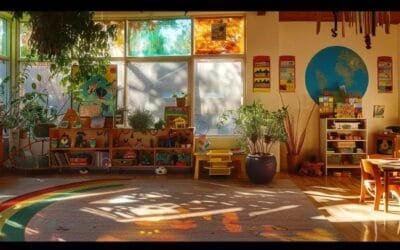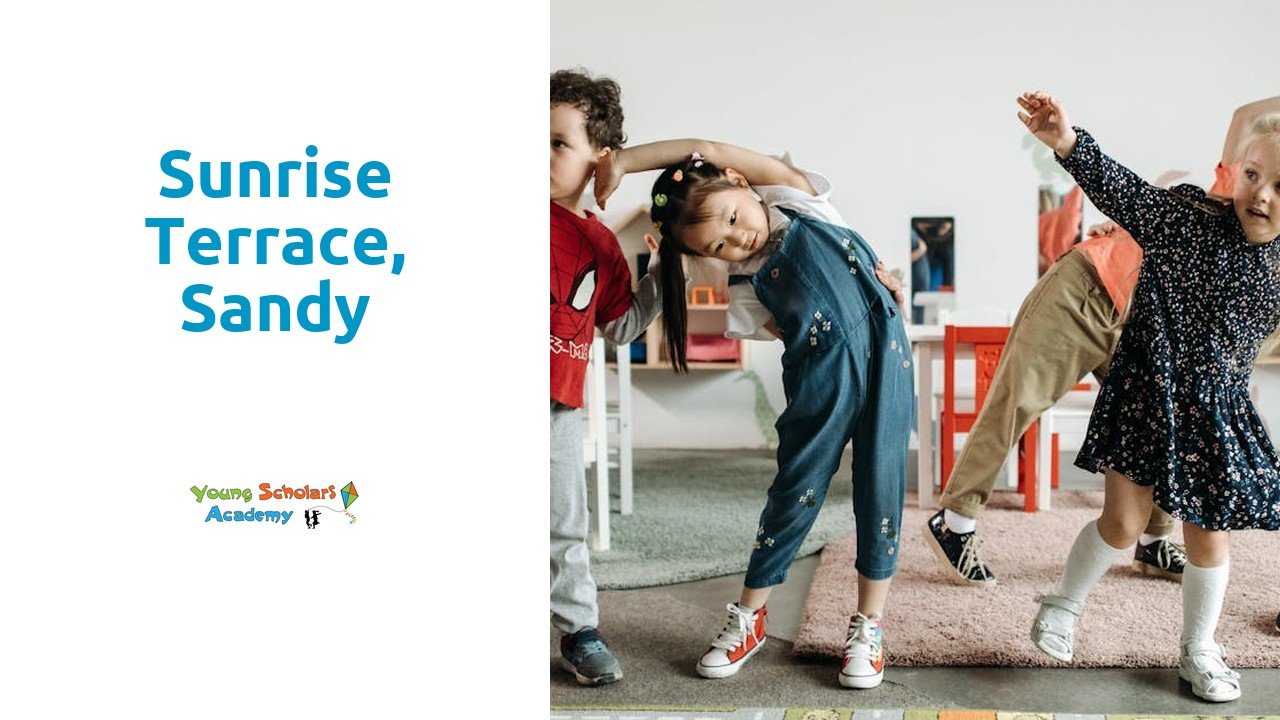Importance of Tailoring Preschool Curriculum to Age
Preschool education plays a crucial role in a child’s development, providing a foundation for future learning and growth. One of the key factors in ensuring the effectiveness of preschool curriculum is tailoring it to the specific age group of children. By customizing lessons and activities to align with the developmental stage of each child, educators can optimize the learning experience and support each child’s unique needs. For instance, at Jordan Point, Sandy Social and Emotional Development have found that age-appropriate curriculum adjustments promote better engagement and comprehension among preschoolers.
When curriculum is tailored to the age of the children, it can enhance their learning experience and overall development. Students are more likely to thrive when they are presented with materials and activities that are neither too simplistic nor too advanced for their cognitive and social-emotional abilities. Furthermore, by adjusting the curriculum to suit the age group, educators can create a more supportive and inclusive environment that fosters growth and confidence in each child. Thus, the importance of tailoring preschool curriculum to age cannot be overstated in nurturing the young minds of tomorrow.
Emotional Regulation
Emotional regulation is a critical skill developed during the preschool years. For many children, this period marks their first experiences with navigating their feelings and understanding how to manage them. Preschool provides a structured environment where children can learn to identify and express their emotions in a healthy manner. Teachers play a key role in guiding children through this process, fostering their emotional understanding and empathy towards others. At Jordan Point, Sandy Social and Emotional Development is prioritized through activities that encourage children to communicate their feelings, build positive relationships with peers, and develop coping strategies for managing emotions.
Preschool also serves as a foundation for children to begin recognizing social cues and building healthy relationships with their peers. Learning how to regulate emotions when interacting with others is a crucial aspect of emotional development. Through guided activities and positive modeling from teachers, children at this stage can begin to understand the impact of their emotions on themselves and those around them. At Jordan Point, Sandy Social and Emotional Development is a fundamental component of the curriculum, fostering an environment where children can practice emotional regulation and build strong social connections with their peers.
Alternative Options for Children Not Yet Ready for Preschool
For children who aren’t quite ready to start preschool, there are alternative options to consider. While preschool offers numerous benefits, some children may need more time to develop specific skills or adjust to a structured learning environment. In such cases, parents can explore alternative options like Autumn Hills or Sandy Social and Emotional Development programs that cater to children’s unique needs and developmental pace. These programs focus on fostering emotional regulation, social skills, and other essential aspects that are crucial for successful preschool experiences.
Providing children with play-based learning opportunities can also be a valuable alternative for those who are not yet ready for preschool. Play-based learning environments allow children to explore, interact, and learn at their own pace while developing crucial skills needed for formal education. With play as the central focus, children can engage in activities that promote creativity, problem-solving, and social interaction, setting a strong foundation for future learning experiences.
PlayBased Learning
Play-based learning is a fundamental approach in preschool education that fosters children’s development through guided play activities. By engaging in hands-on play, children in preschool can explore, create, and interact in a supportive environment that nurtures their cognitive skills. Research has repeatedly shown that play-based learning not only enhances academic achievements but also promotes crucial social and emotional development, giving children a well-rounded foundation for their future academic success. At American Fork, Utah Social and Emotional Development, play-based learning is at the core of the curriculum, providing children with the tools to develop problem-solving skills, creativity, and social collaboration.
In a play-based learning environment, children are encouraged to express themselves freely, make choices, and learn through trial and error, all of which contribute to their holistic growth. Through imaginative play, constructing with blocks, role-playing, and interactive games, children at American Fork, Utah Social and Emotional Development can develop vital skills such as communication, cooperation, and empathy. Additionally, play-based learning facilitates the development of fine and gross motor skills, setting a strong foundation for future academic and physical activities.
Strategies for Preparing Your Child for Preschool
When it comes to preparing your child for preschool, there are several essential aspects to consider for a smooth transition. First and foremost, it is crucial to gradually introduce your child to a structured routine that aligns with what they will experience in a preschool setting. Establishing consistent wake-up times, meal schedules, and bedtime rituals can help your child adapt more easily. Engaging in activities that foster independence, such as encouraging them to dress themselves or take on simple tasks, will also build their confidence and readiness for preschool. Additionally, providing opportunities for social interaction with other children through playdates or group activities can help develop their social skills and build friendships.
Incorporating activities that promote sensory exploration and creativity can enhance your child’s cognitive development and fine motor skills, making them better equipped for the learning experiences in preschool. Engaging in sensory play with items like colored rice or water beads can stimulate their senses and encourage curiosity. Furthermore, encouraging imaginative play with toys or creating art projects can help develop their creativity and self-expression. By prioritizing a balance of structured routines, social interaction, and creative exploration, you can prepare your child for a successful transition to preschool at the Jordan Point, fostering Sandy Social and Emotional Development along the way.
Independence Building
Independence building is a crucial aspect of a child’s development that should be nurtured from a young age. When it comes to preparing your child for preschool, fostering independence is key to helping them thrive in a school setting. Providing opportunities for your child to take on responsibilities and make choices on their own can help build their confidence and self-reliance.
Encouraging independence at home can be as simple as involving your child in everyday tasks such as setting the table, picking out their clothes, or cleaning up their toys. These small activities not only help develop their motor skills but also instill a sense of accomplishment and autonomy. By gradually allowing your child to take on more responsibilities, you are setting them up for success as they navigate the social and academic demands of preschool at places like Quail Point, Sandy Social and Emotional Development.
FAQS
What is the recommended age for starting preschool?
The recommended age for starting preschool is typically around 3 to 4 years old.
Are there benefits to starting preschool at a younger age?
Starting preschool at a younger age can help children develop social skills, independence, and a love for learning.
What should parents consider when deciding on the best age for their child to start preschool?
Parents should consider their child’s readiness for a structured learning environment, social interaction skills, and emotional maturity when deciding on the best age for preschool.
Are there alternative options for children who may not be ready for preschool at a young age?
Yes, alternative options such as play-based learning programs, homeschooling, or enrichment activities can be considered for children who may not be ready for preschool at a young age.
How can parents prepare their child for preschool if they are not yet of the recommended age?
Parents can prepare their child for preschool by encouraging independence, fostering a love for learning through play-based activities, and focusing on emotional regulation skills.
Related Links
What is social-emotional development in elementary school?






